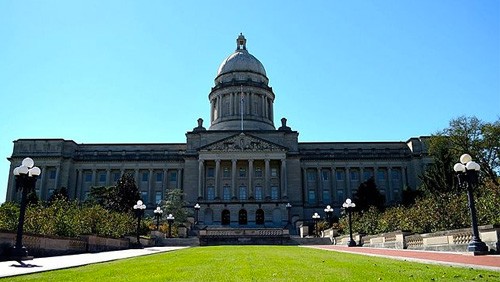“It goes against the constitution.” Gambling opponents hate to hear that phrase, and do everything in their power to keep them from being uttered. Depending on each state in the U.S., language in the state constitution may, or may not, require that any referendums on gambling expansion of any kind be put to a public vote. That’s been the case in Rhode Island, New York and elsewhere, and lawyers often dig in and determine what the true interpretation of the law is meant to be. In the case of Kentucky and sports gambling, legal scrutiny has assessed that, much to the dissatisfaction of gambling opponents, “The state constitution already allows sports gambling.”
 Before a hearing conducted by lawmakers of Kentucky’s Interim Joint Committee on Licensing, Occupations, and Administrative Regulations on Monday, a gaming lawyer asserted that no changes to the state’s constitution are needed for sports gambling legislation to be approved. Daniel Wallach told those present that the Blue Grass State’s court system already decided – a long time ago – that no constitutional change would be needed to allow additional gambling activity. He explained, “[The] debate over whether sports betting is encompassed within the constitutional ban on lotteries was settled nearly 130 years ago. That argument is over. The framers considered it and rejected it.”
Before a hearing conducted by lawmakers of Kentucky’s Interim Joint Committee on Licensing, Occupations, and Administrative Regulations on Monday, a gaming lawyer asserted that no changes to the state’s constitution are needed for sports gambling legislation to be approved. Daniel Wallach told those present that the Blue Grass State’s court system already decided – a long time ago – that no constitutional change would be needed to allow additional gambling activity. He explained, “[The] debate over whether sports betting is encompassed within the constitutional ban on lotteries was settled nearly 130 years ago. That argument is over. The framers considered it and rejected it.”
Wallach, who is a professor at the University of New Hampshire School of Law, was referencing a debate over a century ago about whether or not lotteries and gambling on activities such as horse racing or sports were in the same category. They determined then that they weren’t, asserting that gambling on sports is a game of skill. This decision was reinforced by the Kentucky Court of Appeals after the turn of the century.
The revelation was particularly positive for Representative Adam Koenig, who has pre-filed a sports gambling bill that the state’s General Assembly will explore next month. That legislative effort would put the Kentucky Horse Racing Commission in charge of the activity and allow any racetrack in the state to set up a sportsbook, as well as any pro sports venue that can seat up to 50,000 fans. Online wagers would be permitted, but virtual sportsbooks would be on the hook for a 14.25% tax on their adjusted gross revenue. Retail sportsbooks would only have to pay 9.75%, and racetracks would additionally pay another 0.5% to fund Kentucky’s thoroughbred and standardbred programs.
Kentucky has another bonus that could help see sports gambling become legal next year. Andy Beshear is now the governor of the state and is a strong proponent of expanded gambling activity in the state. He beat out incumbent Matt Bevin, who didn’t want more gaming in the state and once said, falsely, that gambling caused suicides to take place at casinos on a daily basis.
Kentucky lawmakers return from their break on January 7 and the session runs for 60 days. By the time it wraps up on April 15, there’s a good chance that the state will be close to approving sports gambling.